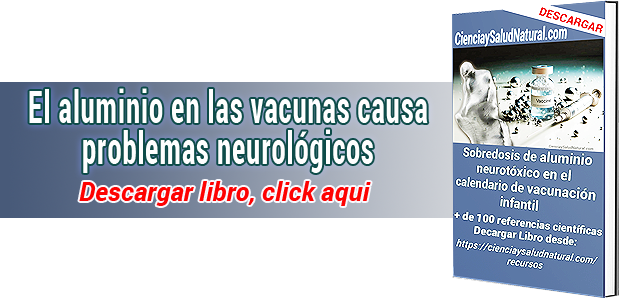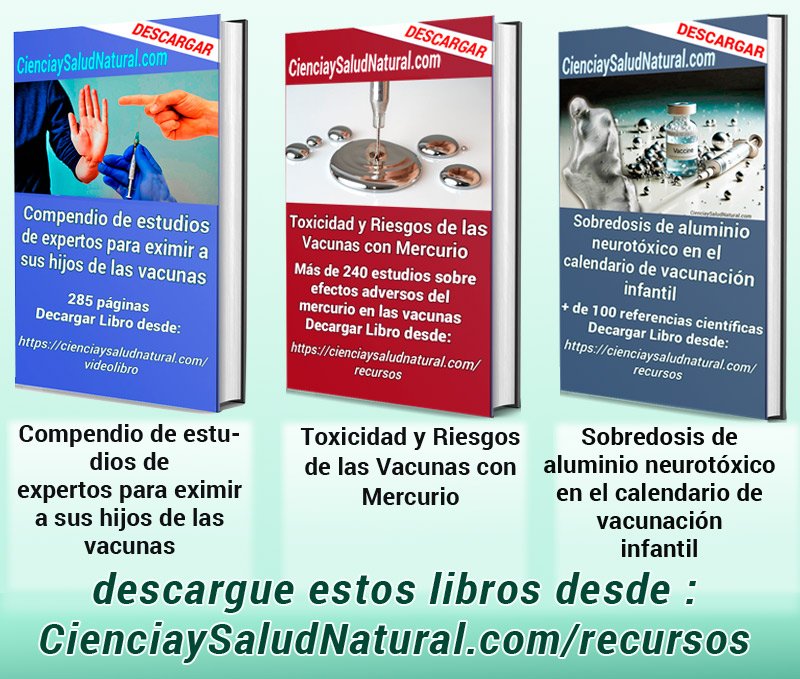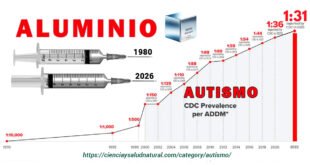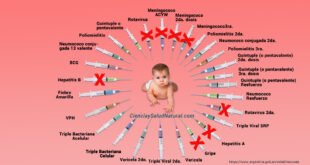Fenbendazole as an Anticancer Agent? A Case Series of Self-Administration in Three Patients – https://doi.org/10.1159/000546362 – https://karger.com/cro/article/18/1/856/927630/Fenbendazole-as-an-Anticancer-Agent-A-Case-Series – CienciaySaludnatural.com

Los pacientes con cáncer de mama, próstata y melanoma experimentaron una regresión tumoral significativa y una remisión duradera, sin quimioterapia. Por favor tambien lea nuestros https://cienciaysaludnatural.com/terminos-del-servicio/
El fenbendazol (FBZ) es un medicamento antiparasitario veterinario de bajo costo que ha ganado atención mundial como posible terapia contra el cáncer. Al igual que la ivermectina, otro antiparasitario ampliamente reutilizado en la investigación y la práctica clínica por sus potentes efectos antitumorales, el fenbendazol parece funcionar mucho más allá de su uso veterinario original.
La ivermectina muestra potencial anticancerígeno y seguridad
Los estudios preclínicos muestran que el fenbendazol altera la supervivencia de las células cancerosas a través de múltiples vías, pero hasta ahora, las pruebas en humanos han sido escasas.
Una serie de casos recientemente publicados por el Dr. William Makis et al. en Case Reports in Oncology presenta tres pacientes notables con cánceres avanzados en estadio IV (mama, próstata y melanoma) que se autoadministraron fenbendazol fuera de los protocolos oncológicos convencionales. Los tres lograron una remisión completa o casi completa, que se mantuvo hasta tres años, sin quimioterapia:
Caso 1: cáncer de mama en estadio IV
Paciente: mujer de 83 años con cáncer de mama ER/PR positivo, HER2 negativo, ampliamente metastásico, que afecta al hígado, los pulmones y la columna vertebral.
Tratamiento:
- Fenbendazol, FBZ diario (222 mg),
- fulvestrant (bloqueador de estrógenos),
- radiación dirigida breve para las lesiones espinales,
- vitamina D y multivitaminas.
Resultado: En 8 meses, los marcadores tumorales se normalizaron y las tomografías PET confirmaron que no había evidencia de enfermedad. Ha permanecido sin recidivas durante casi 3 años con Fenbendazol, FBZ continuo sin efectos adversos.
Este compendio de estudios de expertos, contiene la suficiente evidencia para que los padres puedan presentar a sus médicos y abogados y prevenir que su hijos sean intoxicados con vacunas o inyecciones génicas que no tienen los suficientes estudios de seguridad como corresponde. Tambien sirve para educar a los médicos sin pensamiento crítico. Click aqui para descargar este compendio
Caso 2: cáncer de próstata en estadio IV
Paciente: hombre de 75 años con cáncer de próstata metastásico recurrente (columna vertebral, pelvis, húmero y ganglios linfáticos).
Tratamiento:
- terapia de privación androgénica (Orgovix, Erleada, Xgeva)
- más suplementos (vitamina D/K2, melatonina, berberina, curcumina, artemisinina).
- Se añadió FBZ 222-444 mg/día.
Resultado: regresión de las metástasis óseas y ganglionares. El PSA permaneció indetectable durante más de 2 años. Se encuentra en remisión casi completa a los 26 meses de seguimiento, y continúa con FBZ y terapia de privación androgénica (ADT) es un tipo de terapia hormonal que se utiliza principalmente para tratar el cáncer de próstata mediante la reducción de los niveles de andrógenos en el organismo.
Este documento contiene la suficiente evidencia cientifica (más de 150 referencias) para que las madres puedan presentar a sus médicos y abogados y lograr exenciones para prevenir ser dañadas con vacunas o inyecciones génicas, que no tienen los suficientes estudios de seguridad como corresponde. Tambien sirve para educar a los médicos sin pensamiento crítico. descargar libro, click aqui
Caso 3: melanoma en estadio IV (BRAFV600+)
- Paciente: hombre de 63 años con melanoma metastásico recurrente, también diagnosticado con carcinoma ureteral.
Tratamiento:
Comenzó con Fenbendazol, FBZ (222-444 mg/día) durante una pausa en el tratamiento, posteriormente recibió dos dosis de nivolumab. También tomó suplementos habituales (vitamina C, D, CoQ10, B12, glutatión).
Resultado: El ADN tumoral circulante se redujo de 123 a 0 en menos de dos meses. Las imágenes confirmaron la remisión completa sin evidencia de enfermedad. El paciente sigue sin recidivas 11 meses después.
Mecanismos de acción
Como se describe en esta serie de casos, los estudios preclínicos sobre el fenbendazol revelan múltiples mecanismos anticancerígenos que pueden explicar los espectaculares resultados observados en estos casos:
Desestabilización de los microtúbulos → El FBZ se une a la tubulina, bloqueando la polimerización, lo que provoca la detención mitótica y la apoptosis (similar a los agentes quimioterapéuticos como los alcaloides de la vinca).
Activación de p53 → desencadena la apoptosis mitocondrial y la respuesta al daño del ADN, matando selectivamente las células cancerosas.
Inhibición del proteasoma → interfiere en la degradación de las proteínas, suprimiendo la proliferación de las células tumorales.
Alteración metabólica → inhibe la captación de glucosa y probablemente la utilización de glutamina, privando a las células cancerosas de su combustible esencial.
Antiangiogénico → reduce la formación de vasos sanguíneos tumorales, lo que limita el suministro de nutrientes.
Efectos sobre las células madre cancerosas → el FBZ y otros bencimidazoles parecen capaces de suprimir las células iniciadoras de tumores resistentes.
Esta es solo la segunda serie de casos publicada que documenta remisiones de cáncer humano relacionadas con el uso de fenbendazol. Sorprendentemente, dos de los tres pacientes lograron «ausencia de evidencia de enfermedad», un resultado poco común en cánceres avanzados en estadio IV.
Este documento contiene la suficiente evidencia científica (más de 50) para que las madres puedan presentar a sus médicos y abogados y prevenir sus hijas e hijos sean dañados con vacunas que no tienen los suficientes estudios de seguridad como corresponde. Tambien sirve para educar a los médicos sin pensamiento crítico. No espere hasta último momento para estar protegida… descargar desde: https://cienciaysaludnatural.com/recursos

Sin embargo:
- Los pacientes se automedicaron sin supervisión controlada.
- Todos utilizaron FBZ junto con otros tratamientos, lo que hace que la causalidad no esté clara.
- No se puede descartar la remisión espontánea, aunque sea poco frecuente.
Aun así, la consistencia entre los casos (diferentes tipos de cáncer, diferentes regímenes, mismo resultado: regresión o remisión) apunta a un fenómeno demasiado importante como para descartarlo.
El Fenbendazol, FBZ es barato, accesible y ya ha demostrado su seguridad en medicina veterinaria. Lo que falta es una investigación clínica rigurosa en humanos. Se deben iniciar de inmediato ensayos clínicos para evaluar el verdadero potencial del fenbendazol.
La seguridad de las vacunas contra la hepatitis B que se administran a los recién nacidos no se ha probado en un solo ensayo clínico controlado aleatorio con placebo inerte como se manifiesta en los propios prospectos y tiene sobredosis de aluminio neurotóxico. Este compendio de estudios de expertos, contiene la suficiente evidencia para que los padres puedan presentar a sus médicos y abogados y prevenir que su hijos sean intoxicados con vacunas que no tienen los suficientes estudios de seguridad como corresponde. Tambien sirve para educar a los médicos sin pensamiento crítico. Descargar libro click aqui
Ivermectina: efectos antitumorales, promueve la muerte de las células cancerosas, no es tóxica para las células normales y revierte la resistencia a múltiples fármacos
La ivermectina suprime eficazmente la proliferación y la metástasis de las células cancerosas y promueve la muerte de estas células en dosis que no son tóxicas para las células normales. La ivermectina muestra una excelente eficacia contra las células cancerosas resistentes a los fármacos quimioterapéuticos convencionales y revierte la resistencia a múltiples fármacos… La ivermectina tiene potentes efectos antitumorales, incluida la inhibición de la proliferación, la metástasis y la actividad angiogénica, en una variedad de células cancerosas… La ivermectina promueve la muerte celular programada del cáncer, incluyendo la apoptosis, la autofagia y la piroptosis… La ivermectina también puede inhibir las células madre tumorales. Ivermectin, a potential anticancer drug derived from an antiparasitic drug
El aluminio en las vacunas es neurotóxico y el calendario de vacunación infantil tiene sobredosis de aluminio. Los estudios de seguridad del aluminio tienen graves errores y este tema esta postergado desde hace décadas. Más de 100 referencias científicas de expertos para que Usted presente a su abogado o médico, para eximir a sus hijos de las vacunas. Descargar libro click aqui
Medicamentos reutilizados y compuestos naturales que actúan conjuntamente:
- Ivermectina + lactoferrina + zinc → Antitumoral, refuerzo inmunitario.
- Fenbendazol + tocotrienoles + cardo mariano → Bloquea el metabolismo del cáncer, protege el hígado.
- Pectina cítrica + curcumina + pimienta negra → Detiene la metástasis, reduce la inflamación.
- Aceite de semilla negra + berberina + hoja de olivo → Actúa sobre las células madre cancerosas.
- Vitamina D3 + K2 + hongo cola de pavo → Modulación inmunológica y apoyo óseo.
- Ayuno | Ajo | Jengibre → Quimiosensibilizadores naturales.
Por qué es importante:
- Ataca las células cancerosas desde múltiples ángulos.
- Priva a los tumores de vías de crecimiento.
- Fortalece la inmunidad y reduce los efectos secundarios.
1
El Dr. William Makis presenta el gráfico con el programa de dosificación de ivermectina para el cáncer
Según el Dr. Makis, para la mayoría de los tipos de cáncer, incluidos el de mama, colon, pulmón, páncreas, riñón, estómago y leucemias, se recomienda una dosis inicial de 1 mg por kg de peso corporal al día.
Para una persona de 60 kg, esto equivale a 60 mg diarios:
- – Cinco pastillas de 12 mg
- – O 6 ml de líquido (aproximadamente una cucharadita + 1 ml)
Las pruebas de su eficacia son convincentes y dependen de la dosis:
- – El Dr. Shankara Chetty observó que el PSA de un paciente con cáncer de próstata descendía de 89 a 11 con 45 mg/día.
- – Un caso de la Dra. Tess Lawry mostró una disminución del CA125 (marcador de cáncer de ovario) de 288 a 22 con solo 0,2 mg/kg.
- – Un estudio a largo plazo de Castro sobre niños con leucemia no mostró efectos secundarios después de 6 meses con 1 mg/kg.
En el caso de cánceres agresivos (páncreas, cerebro), la barrera hematoencefálica puede requerir una dosis más alta. El Dr. Makis cita:
- – El colega del Dr. Landrito con cáncer terminal de vesícula biliar: el cáncer desapareció tras 14 meses con 2 mg/kg/día.
- – La dosis más alta documentada es de 2,5 mg/kg (Dr. Chetty), con solo efectos secundarios visuales transitorios que se resolvieron.
La oncología convencional no ofrece esto. ¿Por qué? La ivermectina es un medicamento genérico, sin patente y poco rentable. En consecuencia, no hay ensayos clínicos financiados.
Dr. William Makis, médico: Protocolo contra el cáncer (ivermectina + fenbendazol)
Dosis de ivermectina
- •Baja (≤0,5 mg/kg): remisión, antecedentes familiares, prevención •Media (1 mg/kg): la mayoría de los cánceres
- •Alta (2 mg/kg): cánceres agresivos (páncreas, cerebro, leucemia)
- •Muy alta (≥2,5 mg/kg): casos avanzados/terminales
Dosis de fenbendazol
- •Baja (222 mg, 3 veces por semana): prevención, remisión
- •Media (222 mg al día): cánceres <200 lb
- •Alta (444 mg al día): cánceres en estadio 4/turbo
- •Muy alta (888 mg-1000 mg al día): estadio terminal

El Dr. William Makis nos presenta su protocolo contra cáncer usando Ivermectina, dosis , recomendaciones, cantidad, duración, más ….
https://www.bitchute.com/video/YhsG35RM9cLR
Más Referencias:
- Aug 18, 2025 — NEW STUDY: Fenbendazole Linked to Remission or Near-Remission in Three Stage IV Cancer Patients: Breast, prostate, and melanoma patients experienced dramatic tumor regression and long-lasting remission — without chemotherapy. — Nicolas Hulscher MPH link
- Jun 15, 2025 — Scientists Announce Major Breakthrough as Ivermectin Nanoparticles Destroy Brain Cancer Cells — Frank Bergman, SLAY link
- May 26, 2025 — Fenbendazole as an Anticancer Agent? A Case Series of Self-Administration in Three Patients — Dr. William Makis et al, Case Reports in Oncology link
- Apr 22, 2025 — NEW STUDY – Ivermectin Shows Striking Anticancer Potential and Remarkable Safety: Largest review to date of ivermectin use in cancer patients finds no safety concerns, promising anecdotal reports, and strong preclinical evidence of tumor suppression. — Nicolas Hulscher MPH link
- Apr 9, 2025 — A Review of Ivermectin Use in Cancer Patients: Is It Time to Repurpsoe Ivermectin in Cancer Treatment?— Lai Yuwen et al, Acta Poloniae Pharmaceutica link
- Mar 31, 2025 — How to Block Cancer Stem Cells: A few specific options with more to follow; “Based on cumulative mechanistic, preclinical, and clinical evidence from the Cancer Care monograph and other sources, the most robust biochemical CSC-targeting agents to date are: Metformin, Curcumin, Disulfiram, Ivermectin, Green Tea Extract (EGCG), and Berberine. However, we should also consider the safety profile of these agents. My understanding is that disulfiram can have significant and severe side effects. The other treatments, especially curcumin and ivermectin, are safe. Some sources suggest that curcumin is not easily absorbed and should be combined with piperine (black pepper extract). We should also always check for possible interactions with any other medications or supplementation we are using.” — Justin Smith link
- Jan 15, 2025 — Do Ivermectin and Mebendazole help against cancer? Research in different cancers. — Dr. Igor Atabekov (YouTube) 10-min video
- Jan 12, 2025— BOMBSHELL CURE For Pfizer’s COVID “Vaccine” Integration Into The Human Genome; “The latest research findings support what this Substack has been theorizing for the last few years regarding the miraculous repurposed compounds Ivermectin and Fenbendazole.” — 2nd Smartest Guy in the World link
- Dec 3, 2024 — Groundbreaking Study on Ivermectin and Fenbendazole in Cancer Treatment; “The research reveals the combined effects of ivermectin, fenbendazole, and complementary compounds in addressing cancer at multiple levels. While traditionally known as antiparasitic drugs, ivermectin and fenbendazole, when used together, showed potential to modulate cancer pathways and support the body’s natural healing mechanisms. Key findings from the study: 1. Immune System Modulation… 2. Cellular Repair… 3. Anti-Cancer Activity… These effects were further amplified by the addition of Vitamin E, curcumin, and CBD, which are known for their anti-inflammatory, antioxidant, and immune supporting properties. This synergy highlights the importance of combining multiple therapeutic elements to address the complexities of cancer biology. Read the full study here to explore the detailed findings.” — Internal Healing & Wellness (Dr. Khan MD, Functional Medicine Doctor in The Woodlands) link
- Nov 5, 2024 — Ivermectin Inhibits Bladder Cancer Cell Growth and Induces Oxidative Stress and DNA Damage — Ning Fan et al, Anti-Cancer Agents link
- Oct 14, 2024 — New Cancer Treatment Protocol Featuring ‘Horse Dewormer’ Ivermectin, ‘Dog Dewormer’ Fenbendazole, and Mebendazole Passes Peer Review, Marking Potential Breakthrough in Therapy; “According to the publication, ivermectin, fenbendazole, and mebendazole each exhibit anticancer properties through distinct yet complementary mechanisms. Ivermectin, an antiparasitic agent, induces apoptosis in cancer cells by modulating mitochondrial function and inhibiting critical pathways such as glycolysis. It has shown significant efficacy in shrinking tumor volumes in various cancer types, including pancreatic cancer, when used alone or in combination with other agents. Fenbendazole and mebendazole, originally used as veterinary antiparasitic agents, have shown promise as anticancer agents by disrupting microtubule formation, inhibiting glucose metabolism, and inducing apoptosis specifically in cancer cells. Both drugs have been demonstrated to reduce tumor growth and improve survival in preclinical cancer models, often surpassing traditional chemotherapy in efficacy.” — Jim Hoft, Gateway Pundit link
- Sep 19, 2024 — Targeting the Mitochondrial-Stem Cell Connection in Cancer Treatment: A Hybrid Orthomolecular Protocol; “Based on our review of the scientific literature, the following protocol combining orthomolecules, drugs and additional therapies for targeting the mitochondrial-stem cell connection (MSCC) in cancer treatment is proposed: Intravenous Vitamin C… Oral Vitamin D… Zinc… Ivermectin… Benzimidazoles and DON… Dietary Interventions… Additional Therapeutics.” [Dosage considerations included in paper.] — Ilyes Baghli et al, Journal of Orthomolecular Medicine link
- Mar 20, 2024 — Lipid-Restricted Culture Media Reveal Unexpected Cancer Cell Sensitivities; “Fenretinide and ivermectin [are] small molecules whose cytotoxicity is greatly enhanced in lipid-restricted media formulations. The mechanism of action studies indicates that ivermectin-induced cell death involves oxidative stress… Notably, both fenretinide and ivermectin have previously demonstrated in vivo anticancer efficacy despite their low cytotoxicity [cell toxicity] under typical cell culture conditions.” — Ralson B. Goldfarb et al, ACS Chemical Biology link
- Mar 12, 2024 — Ivermectin: A Multifaceted Drug With a Potential Beyond Anti-parasitic Therapy; “Ivermectin is a derivative of avermectin originally used to treat parasitic infections. Emerging literature has suggested that its role goes beyond this and may help treat inflammatory conditions, viral infections, and cancers.” — Baneet Kaur et al, Cureus link
- Jan 26, 2024 — Albendazole inhibits colon cancer progression and therapy resistance by targeting ubiquitin ligase RNF20 — Iram Fatima et al, British Journal of Cancer link
- Jan 24, 2024 — Gene signatures to therapeutics: Assessing the potential of ivermectin against translocation multiple myeloma; “Ivermectin showed strong binding affinity to all 10 identified targets… Ivermectin inhibited translocation multiple myeloma cell growth… and induced multiple myeloma cell apoptosis in vitro. Furthermore, ivermectin increased reactive oxygen species accumulation and altered the mitochondrial membrane potential in translocation multiple myeloma cells.” — Yang Song et al, World Journal of Clinical Oncology link
- Oct 14, 2023 — Antiparasitic Drugs Killing Cancer? How does it work? Can it be used by cancer patients?; “A number of drugs against parasites (artemisinin, ivermectin, chloroquine, hydroxychloroquine, albendazole, mebendazole, etc.), which have long been used in humans, have attracted the attention of scientists in recent years. It has been observed that they are also able to attack cancer cells, reducing the resistance of tumors. In this video we will look at what is currently known about the use of antiparasitic drugs against cancer. — Dr. Igor Atabekov, Oncologist 10-min video
- Oct 10, 2023 — Ivermectin as a potential therapeutic strategy for glioma [tumor on brain or spinal cord]; “This review seeks to provide an overview of the underlying mechanisms that enable ivermectin’s capacity to suppress glioma. Furthermore, it aims to elucidate the challenges and prospects associated with utilizing ivermectin as a new anticancer agent.” — Xing Hu et al, Journal of Neuroscience Research link
- Oct 3, 2023 — Ivermectin: Wonderdrug; “It has profound anti-cancer properties. How profound? Well, consider the following: Overcomes cancer cell resistance to chemotherapy (read here). Inhibits a protein (PAK1) essential for the growth of more than 70% of all cancers (read here). Multiple mechanisms of action against breast cancer (read here).” — Dr. Michael Turner MD link
- Sep 23, 2023 — Ivermectin induces nonprotective autophagy by downregulating PAK1 and apoptosis in lung adenocarcinoma cells — Man-Yuan Li et al, Cancer Chemotherapy and Pharmacology link
- Aug 25, 2023 — Therapeutic targeting of nuclear export and import receptors in cancer and their potential in combination chemotherapy “Ivermectin preclinical/clinical anticancer activity: KPNB1-dependent anti-proliferative and pro-apoptotic effects in epithelial ovarian carcinoma and chronic myeloid leukaemia cell lines. Blocked nuclear import of HIF-1a, thereby downregulating hypoxia-induced tumorigenic transcriptional responses.” — Stella Newell et al, IUBMB Life link
- Jun 14, 2023 — Ivermectin May Defeat Cancer and Other Common Chronic Diseases of Aging: If you think Big Pharma had good reasons to censor ivermectin during Covid-19 how about now when we know it is likely effective against all chronic diseases associated with aging? — Marian Laderoute PhD (Immunology) link
- May 12, 2023 — Eprinomectin: a derivative of ivermectin suppresses growth and metastatic phenotypes of prostate cancer cells by targeting the β-catenin signaling pathway — Angela Samy et al, Journal of Cancer Research and Clinical Oncology link
- Aug 25, 2022 — Ivermectin and gemcitabine combination treatment induces apoptosis of pancreatic cancer cells via mitochondrial dysfunction — Da Eun Lee et al, Frontiers in Pharmacology link
- Jun 15, 2022 — Abstract 2320: Ivermectin suppresses pancreatic cancer via mitochondria dysfunction — Daeun Lee et al, American Association for Cancer Research link
- Aug 12, 2021 — Ivermectin has New Application in Inhibiting Colorectal Cancer Cell Growth — Shican Zhou et al, Frontiers in Pharmacology link
- Aug 3, 2021 — Johns Hopkins Study: Anti-Parasitic Drug Slows Pancreatic Cancer in Mice; “In a study published in the journal Oncotarget on July 6, Gregory Riggins, M.D., Ph.D., professor of neurosurgery and oncology at the Johns Hopkins University School of Medicine, and his team used two different mouse models to determine that the anti-parasitic drug mebendazole could slow or stop the growth and spread of both early and late-stage pancreatic cancer.” — Johns Hopkins Medicine link
- Jul 6, 2021 — Mebendazole disrupts stromal desmoplasia and tumorigenesis in two models of pancreatic cancer — Tara Williamson et al, Oncotarget link
- Jun 30, 2021 — Albendazole and Mebendazole as Anti-Parasitic and Anti-Cancer Agents: an Update; “Two clinical reports for albendazole and 2 case reports for mebendazole have revealed promising effects of these drugs in human patients having variable types of cancers. However, because of the toxicity of albendazole… mebendazole is currently more popularly used than albendazole in anti-cancer clinical trials.” — Jony-Yil Chai et al, The Korean Journal of Parasitology link
- June 2021 — Albendazole and Mebendazole as Anti-Parasitic and Anti-Cancer Agents: an Update; “It is of particular note that albendazole and mebendazole have been repositioned as promising anti-cancer drugs. These drugs have been shown to be active in vitro and in vivo (animals) against liver, lung, ovary, prostate, colorectal, breast, head and neck cancers, and melanoma… However, because of the toxicity of albendazole… if high doses are used for a prolonged time, mebendazole is currently more popularly used than albendazole in anti-cancer clinical trials.” — Jong-Yil Chai et al, The Korean Journal of Parasitology link
- Apr 29, 2021 — Repositioning of Antiparasitic Drugs for Tumor Treatment; “Based on the similarities between parasitic diseases and cancer, recent studies aimed to investigate the efficacy of existing antiparasitic drugs in cancer…. These drugs regulate tumor growth via multiple targets, pathways, and modes of action. These antiparasitic drugs are good candidates for comprehensive, in-depth analyses of tumor occurrence and development.” — Yan-Qi Li et al, Frontiers in Oncology link
- Mar 18, 2021 — Albendazole exerts antiproliferative effects on prostate cancer cells by inducing reactive oxygen species generation — Ukjin Kim et al, Oncology Letters link
- Mar 2, 2021 — Ivermectin converts cold tumors hot and synergizes with immune checkpoint blockade for treatment of breast cancer — Dobrin Draganov et al, NPJ Breast Cancer link
- Feb 10, 2021 — Fenbendazole Enhancing Anti-Tumor Effect: A Case Series — Ryan S. Chiang et al, Clinical Oncology: Case Reports link
- January 2021 — Ivermectin, a potential anticancer drug derived from an antiparasitic drug; “Ivermectin effectively suppresses the proliferation and metastasis of cancer cells and promotes cancer cell death at doses that are nontoxic to normal cells. Ivermectin shows excellent efficacy against conventional chemotherapy drug-resistant cancer cells and reverses multidrug resistance.” — Mingyang Tang et al, Pharmacological Research link
- Jan 21, 2020 — Progress in Understanding the Molecular Mechanisms Underlying the Antitumour Effects of Ivermectin — Jian Liu et al, Drug Design, Development and Therapy link
- Aug 31, 2019 — Mebendazole as a Candidate for Drug Repurposing in Oncology: An Extensive Review of Current Literature; “Several in vitro studies suggest that mebendazole (MBZ) inhibits a wide range of factors involved in tumor progression… MBZ not only exhibits direct cytotoxic activity, but also synergizes with ionizing radiations and different chemotherapeutic agents and stimulates antitumoral immune response. In vivo, MBZ treatment… led to the reduction or complete arrest of tumor growth, marked decrease of metastatic spread, and improvement of survival.” — Andrea Emanuele et al, Cancers link
- Jun 18, 2019 — Ivermectin reverses the drug resistance in cancer cells through EGFR/ERK/Akt/NF-κB pathway; “Ivermectin significantly enhanced the anti-cancer efficacy of chemotherapeutic drugs to tumor cells, especially in the drug-resistant cells.” — Lu Jiang et al, Journal of Experimental & Clinical Cancer Research link
- Aug 12, 2018 — Cytotoxic Effect of Albendazole on the Breast Cancer and Melanoma Cell Lines; “Albendazole significantly reduced the viability of MCF7 [a “breast cancer cell line”]… In addition, this effect on B16F10 [“the melanoma cell line”] in all Albendazole concentration levels was significant.” — Spideh Javdan et al, Zahedan Journal of Research in Medical Sciences link
- Apr 20, 2017 — Repurposing Albendazole: new potential as a chemotherapeutic agent with preferential activity against HPV-negative head and neck squamous cell cancer; “Albendazole treatment resulted in apoptosis, inhibition of cell migration, cell cycle arrest in the G2/M phase and altered tubulin distribution. Normal control cells were not measurably affected by any dose tested. This study indicates that albendazole acts to inhibit the proliferation of human papillomavirus-negative HNSCC cell lines.” — Farhad Ghasemi et al, Oncotarget link
- Sep 22, 2016 — Albendazole as a promising molecule for tumor control — L.S.E.P.W. Castro et al, Redox Biology link
- Feb 10, 2011 — Ivermectin, ‘Wonder Drug’ from Japan: The Human Use Perspective; “Originally introduced as a veterinary drug, it kills a wide range of internal and external parasites in commercial livestock and companion animals. It was quickly discovered to be ideal in combating two of the world’s most devastating and disfiguring diseases which have plagued the world’s poor throughout the tropics for centuries. It is now being used free-of-charge as the sole tool in campaigns to eliminate both diseases globally. It has also been used to successfully overcome several other human diseases and new uses for it are continually being found. This paper looks in depth at the events surrounding ivermectin’s passage from being a huge success in Animal Health into its widespread use in humans, a development which has led many to describe it as a ‘wonder’ drug.” — Andry Crump & Satoshi Omura, Proceedings of the Japan Academy link
Colabore por favor con nosotros para que podamos incluir mas información y llegar a más personas: contribución en mercado pago o paypal por única vez, Muchas Gracias!
Via PAYPAL: Euros o dólares click aqui
ARGENTINA 10.000$ar https://mpago.la/1srgnEY
5.000$ar https://mpago.la/1qzSyt9
1.000$ar https://mpago.la/1Q1NEKM
Solicite nuestro CBU contactenos
Los efectos secundarios de la vacuna contra el Sarampión, Rubeola y Paperas, SRP (MMR en EE.UU.) incluyen convulsiones, que ocurren en aproximadamente 1 de cada 640 niños vacunados, aproximadamente 5 veces más frecuentemente que las convulsiones por infección de sarampión, sepa como eximir a sus hijos de esta vacuna. Este compendio de estudios de expertos, contiene la suficiente evidencia para que los padres puedan presentar a sus médicos y abogados y prevenir que su hijos sean intoxicados con vacunas que no tienen los suficientes estudios de seguridad como corresponde. Tambien sirve para educar a los médicos sin pensamiento crítico. Descargar libro click aqui
Descargar libros desde https://cienciaysaludnatural.com/recursos










